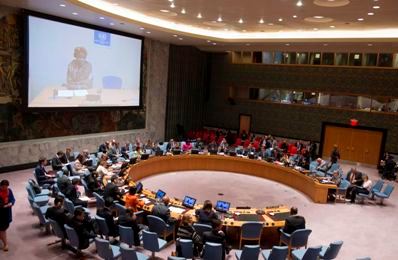Sexual violence in South Sudan on “massive scale”: report
By Julius N. Uma
July 23, 2017 (JUBA) – Thousands of South Sudanese women, girls, and men, who were raped in ethnically-charged sexual attacks in the ongoing conflict are battling mental distress and stigma with nowhere to turn for help, Amnesty International said in a new report.

Entitled, “Do not remain silent”, Amnesty International’s new report unearthed aggravated acts of sexual violence against thousands of people across the country since hostilities began in December 2013.
“This is pre-meditated sexual violence on a massive scale. Women have been gang-raped, sexually assaulted with sticks and mutilated with knives,” said Muthoni Wanyeki, Amnesty International’s Regional Director for East Africa, the Horn and the Great Lakes.
10 South Sudan human rights defenders, whose identities have been concealed, jointly worked with Amnesty International on the report.
According to the report, perpetrators come from both sides of the conflict, pitting the pro-government forces of President Salva Kiir, a Dinka, against opposition forces of former First Vice-President, Riek Machar, a Nuer, and their respective allied armed groups.
The new report described the scale of sexual violence in South Sudan as “massive”.
Some of the sexual assaults occur not during the fighting, but among the millions of people sheltering from the conflict, the report stated.
The report interviewed 16 male victims, some who said they had been castrated or had their testicles pierced with needles.
Many victims said they were experiencing nightmares, loss of memory, lack of concentration, and had thought of revenge or suicide – all common symptoms of post-traumatic stress disorder.
“Some of the attacks appear designed to terrorise, degrade and shame the victims, and in some cases to stop men from rival political groups from procreating,” Wanyeki said.
“The South Sudanese government must take deliberate measures to halt this epidemic of sexual violence, starting by sending a clear message of zero tolerance, immediately ordering an independent and effective investigation into the attacks that have taken place and ensuring that those responsible are held to account in fair trials,” she added.
Last year, for instance, the United Nations reported a 60 percent increase in gender-based violence in South Sudan, with 70 percent of women in U.N. camps in the capital, Juba, having reportedly been raped since the start of the civil war in mid-December 2013.
(ST)
